In the sepulchral depths of time, where the boundaries of this plane and the phantasmal world of non-aligned dimensions merge, lies the heartrending account of the Romanovs, the ill-fated imperial family of Russia. This ominous and perturbing tale, rife with perfidy, portents, and the evil whispers of a monstrous entity, unveils the concealed forces that have guided the path of human history.
In the year 1918, the culmination of a chain of events that had long been in motion came to pass. The once-majestic House of Romanov, led by Tsar Nicholas II, his wife Alexandra, and their five children, was imprisoned and isolated in the Ipatiev House, a merchant’s residence in the city of Yekaterinburg, beyond the Ural Mountains. This occurred amid the backdrop of the Russian Civil War, which raged across the country as various factions fought for control. The Bolsheviks, a formidable movement of revolutionaries, had seized power and brought the once-great empire to its knees. In an effort to thwart any potential rescue attempts, the Bolsheviks had transferred the Romanovs from their previous confinement in Tobolsk to Yekaterinburg. It was here that the Czech Legion, a unit of Czech and Slovak soldiers who had been fighting with the Russian army against Germany, became involved in the story. The Bolsheviks feared that the Czech Legion, who were sympathetic to the Romanovs and opposed to the Bolsheviks, might attempt to rescue the royal family. As a result, the Bolsheviks made the decision to eliminate any chance of rescue by carrying out the ultimate fate of the Romanovs with a ruthless efficiency.
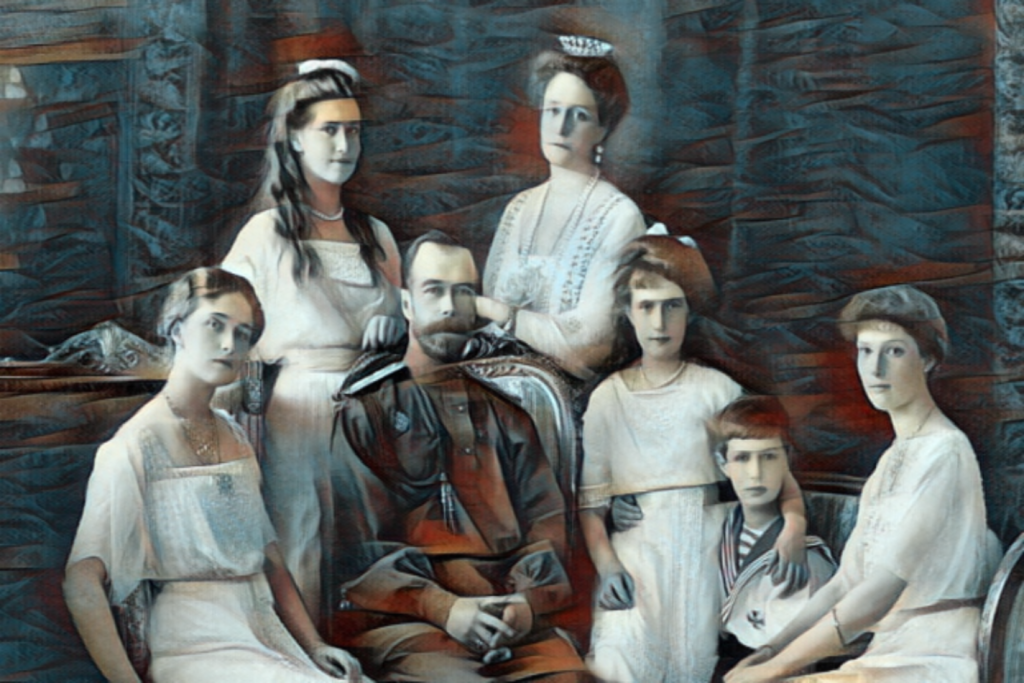
The unseen machinations of a cosmic horror, the Vyraj, remained unknown to most. This gibbering blob of momentous evil whispered alluring secrets to the Bolshevik revolutionaries, compelling them to carry out its atrocious bidding. Its tendrils of darkness and chaos reached deep into the minds of the unsuspecting Bolsheviks, bending their thoughts and actions to serve its demented purpose. The Vyraj’s influence would forever soil the core of the newly formed Soviet Union, a land now steeped in the darkness of the beyond.
Among the central figures ensnared within this macabre chronicle stood Vladimir Lenin, the ardent chieftain of the Bolsheviks, and Yakov Sverdlov, the first architect of the nascent Soviet state. As the demonic whispers of the Vyraj insinuated themselves into their unsuspecting minds, they were inadvertently transformed into emissaries of the anomaly’s nefarious design. Driven by the unseen impulses of these supernatural intrigues, they endorsed the grim and irrevocable destiny of the Romanovs, sealing their doom with a cold and unyielding resolve.
Yakov Sverdlov, a man of considerable organizational prowess and unrelenting dedication to the Bolshevik cause, found his very essence tainted by the touch of the Vyraj. Under its hypnotic guidance, Sverdlov played a crucial role in the orchestration of the Romanovs’ demise, ensuring the necessary orders were transmitted to the local authorities, and seeing to it that the Bolshevik executioners were supplied with arms and directives. In his capacity as the high and mighty Chairman of the Central Executive Committee of the All-Russian Congress of Soviets, Sverdlov wielded great influence in Bolshevik circles and was believed to have imparted the order for the execution of the Romanovs. Murmurs even circulated that he had signed the dread decree with his own hand.
Vladimir Lenin, an impassioned revolutionary leader and figurehead of the Bolshevik movement, was likewise ensnared by the Vyraj’s dark influence. While not directly involved in the execution, Lenin’s unwavering approval and support for the elimination of the Romanovs provided the underlying framework for their erasure from the register of living kings and queens. The Vyraj, ever watchful and cunning, savored the turmoil it had sown, its dark threads ever reaching deeper into the hearts and minds of these once-honorable men.
Thus, the bleak and chilling narrative of the Romanovs’ demise unfolded, with Lenin and Sverdlov ignorantly serving as the executors of the Lovecraftian horror’s malefic will. Little did they know that their actions, though outwardly driven by their own fervent convictions, were in truth guided by a force far beyond the ken of mortal understanding – an ancient and preternatural power that wallowed in disorder and despair, seeking to mold the progress of human history to suit its own inscrutable ends.
Under the guidance of this somber and impenetrable force, Yakov Yurovsky, a devoted Bolshevik and Soviet intelligence officer, assembled a cadre of ruthless executioners. Among these dark-hearted souls were Mikhail Medvedev, a man of modest beginnings, who had risen through the ranks of the Red Army, his heart hardened by the cruelties of war; Peter Ermakov, a former blacksmith who had given way to a festering fascination with violence and an insatiable thirst for power; and Alexei Kabanov, a man haunted by his past, seeking solace in the twisted ideologies of the revolution. These three individuals, bound together by fate and their allegiance to the Bolshevik cause, would ultimately perpetrate one of the most execrable acts in the history of mankind, forever staining their hands with the blood of the innocent. As they readied themselves to fulfill their sanguinary purpose, the spectral prophecy of Grigori Rasputin, the enigmatic mystic who once held dominion over the Romanovs, weighed heavily in the atmosphere. Rasputin had predicted the grisly slaughter of the royal family and the terrible retribution the nation would suffer for their annihilation.
Rumors abound that, in the year 1916, Rasputin dispatched a missive to Tsar Nicholas II, laden with a dire warning: should Rasputin meet his end at the hands of government officials, the entire regal lineage would find themselves at the mercy of the Russian masses, and their lives extinguished within a span of two years. Alas, the veracity of this portentous correspondence and the prophecy it contains are shrouded in uncertainty, forcing one to ponder if the account has grown more sinister and grandiose as it traversed the murky corridors of time.
On the ill-omened eve of July 17, 1918, the Romanovs, unaware of the cosmic forces that had conspired to orchestrate their termination, stood before their executioners. The very atmosphere was pregnant with the palpitations of the Vyraj’s malevolent essence. With dreadful resolve, the cold-hearted killers let forth a torrential storm of bullets, tearing through the tender flesh and bone of the imperial family, extinguishing their lives in a tempest of lead and a grotesque dance of blood and viscera. The monstrous act, now irrevocably etched into the annals of time, had been consummated, and the once-proud spirit of the Tsarist regime was henceforth extinguished, leaving naught but a chilling void in its wake.
In the aftermath of the Romanovs’ ghastly demise, the callous executioners sought to conceal the evidence of the brutal murder, their intentions as inscrutable as the eldritch forces that had guided their guilty hands. Under the cloak of darkness, they transported the lifeless bodies to a remote and desolate location, where the land itself seemed to exude an aura of hysterical alarm. Within the abyssal depths of the earth, a loathsome chthonic being stirred, its senses attuned to the scent of the royal corpses. As the executioners labored to dispose of the mangled remains, this hideous creature, borne of the unutterable horrors of the subterranean realms, eagerly awaited its macabre feast.
The vile minions of the Vyraj, driven by the possessing influence of their occult master, endeavored to obliterate all traces of the Romanovs’ existence. They bore the dead bodies to the gloomy forest of Koptyaki, where they started the process of dismembering the bodies and dissolving the remnants in a noxious concoction of sulfuric acid. The very air reeked with the stench of death and corruption, a reflection of the heinous nature of their deed.
Yet, as they toiled in the unholy darkness, the subterranean creature moved, slithering forth from its loathsome lair to gorge itself upon the remnants of the fallen dynasty. Its grotesque, amorphous form writhed and pulsed as it devoured the mutilated corpses, the very essence of the Romanovs consumed by the voracious appetite of this unspeakable blasphemy from the depths of the earth.
Little did the executioners suspect that their attempts to expunge the memory of the Romanovs would serve as the catalyst for an even more horrifying ruin, as the subterranean abomination, sated by its ghastly repast, would emerge from its stygian depths, haunting the annals of Russian history and forever linking the tragic tale of the Romanovs to the mind-shattering horrors of the Lovecraftian realm.
In the aftermath of the assassination, the Vyraj’s influence persisted, infiltrating the very fabric of the nascent Soviet Union and its people. Its insidious influence of gloom and pandemonium spread across the nation, molding its contours and ensuring the thing’s foothold would eternally haunt the annals of human history.
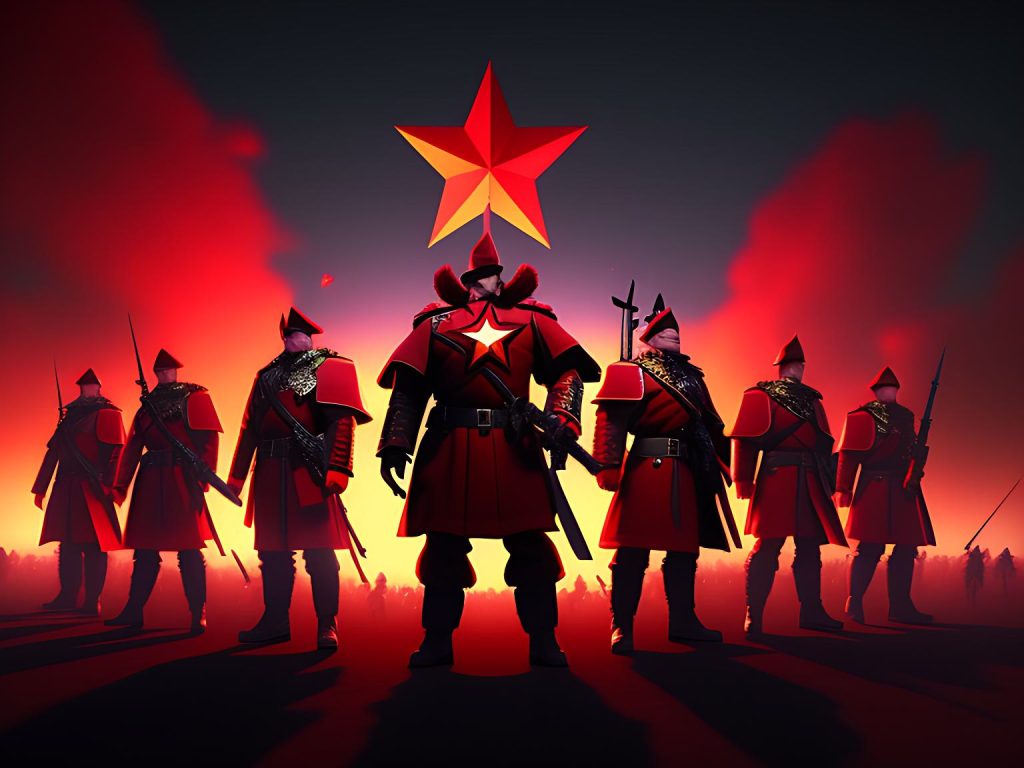 In acknowledgment of Sverdlov’s role in the obliteration of the Romanov dynasty, the city of Yekaterinburg was rechristened Sverdlovsk, a morbid tribute to the man instrumental in the family’s downfall. This bleak token of the past served as a perpetual reminder of the dark forces that had conspired to alter Russia’s trajectory.
In acknowledgment of Sverdlov’s role in the obliteration of the Romanov dynasty, the city of Yekaterinburg was rechristened Sverdlovsk, a morbid tribute to the man instrumental in the family’s downfall. This bleak token of the past served as a perpetual reminder of the dark forces that had conspired to alter Russia’s trajectory.
As the skeletal projection of the Vyraj continued to weave its wicked web through the newly formed Soviet Union, the populace remained oblivious to the alien origins of their suffering. The revolutionary ardor that had once blazed with the promise of a brighter future now found itself tainted by the maniacal laughter of an age-old perversion.
It was in this dark epoch that the once-grand land of Russia found itself metamorphosed into a breeding ground for nameless terrors. The bitter winters grew colder, and the nights brimmed with augmented anxiety as the madness-inducing essence of the Vyraj seeped into the very atmosphere. Tattle of bizarre occurrences and unnatural phenomena plagued the countryside, as the unhinged will of this being corrupted the natural order.
Lenin, the iconic beacon of the revolution, found himself inexorably ensnared in the web of the Vyraj’s influence. His once-clear mind, a bastion of soaring idealism and fiery conviction, began to suffer erosion because of the unearthly whispers that emanated from the horror out of space. The once-charismatic leader, who had been revered by countless multitudes, was now unwittingly reduced to a mere puppet, dancing at the behest of an awesome power beyond the ken of mortal understanding.
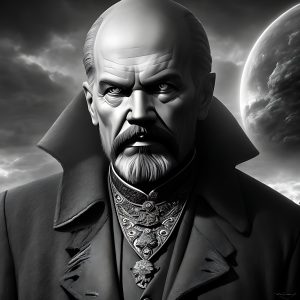
Under the guidance of the Vyraj, Lenin embarked upon a series of historical actions that would alter Russia’s prospect of becoming a nation among nations. The enigmatic enforcer, its focused beam of blackness and mayhem reaching deep into the vulnerable recesses of Lenin’s psyche, manipulated the revolutionary leader to enact policies that served its own inscrutable and malign ends.
The establishment of the Red Terror, a period of ruthless political repression and bloodshed, could be traced to the pernicious influence of the Vyraj, its monstrousness driving Lenin to orchestrate the systematic extermination of those who dared oppose the fledgling Soviet regime. The very streets of Russia ran red with the blood of its citizens, as the Vyraj reveled in the symphony of despair and suffering it had so skillfully composed.
As Lenin’s health began to falter, the Vyraj’s corrupting leverage continued to exert itself, guiding the formation of the New Economic Policy, which was touted as a solution to the nation’s economic woes, allowing private enterprise and foreign investment while granting peasants more freedom to sell their crops. It was an ostensibly pragmatic approach to economic recovery that, in truth, served only to further the goals of the Lovecraftian presence. The Vyraj, ever cunning and resourceful, warped the fabric of the Soviet Union to suit its own nightmarish ends, ensuring that the nation’s people would remain in thrall to the otherworldly horror that had claimed their once-illustrious leader.
The memory of the Romanovs, once a proud and noble family, was all but expunged from the pages of history. In the shadowy recesses of the world where the Vyraj’s sway is most potent, there are rumors of the Romanovs and their story of glory and misery. Their once-prosperous existence was marred by a brutal end that left an indelible mark on history. The mere mention of their name still invokes shivers of unease and sadness in the hearts of those who remember their sorrowful departure from the terrestrial plane of existence. There are mentions of their spirits wandering the halls of their palatial homes, forever trapped in a state of torment and despair. Some say that the Lovecraftian fiend still preys on their legacy, manipulating it to achieve its adversarial designs. It is said that the Vyraj uses the ghosts of the Romanovs to instill fear and submission in the hearts of the people, reminding them of the punishments and tortures that await those who dare to defy its will.
The power of the Vyraj over the Romanovs was so profound that even after their passing, the family’s name became a weapon in its hands. The Lovecraftian monstrosity saw in their story an opportunity to produce trembling and sow chaos, to remind humanity of the futility of its desires and the inevitability of its ultimate demise. Despite their untimely exit, however, the image of the Romanovs lives on, a testament to the human spirit and its capacity for both greatness and humility. Their story serves as a warning to those who would dare to challenge the power of the Vyraj, a reminder of the terrible cost of hubris and the folly of seeking to defy the will of beings far beyond our comprehension.
The ordinary citizens, blind to the malignant forces at work, toiled beneath the weight of the oppressive regime, their lives and aspirations steadily consumed by the growing shadow of the Vyraj. The once-vibrant dreams of a people’s revolution, forged in the fires of hope and camaraderie, now lay shrouded in a pall of despair, as the steely tentacles of the abhorrent psychic leech continued to tighten their grip upon the beleaguered nation. The Soviet Union exploited the Vyraj’s energy to spread its left-wing ideology with unparalleled conviction, influencing billions to submit to the cosmic annihilators from the dark corners of the universe. These extraterrestrial entities thirst for the malleable minds of humans, feeding off their neural frequencies to satiate their ravenous appetite. The deceptive manipulation of the masses through the abilities of the spectral forces resulted in an unyielding grip on the hearts and minds of humanity. The alliance between the Bolsheviks and the celestial beings was a flawless harmony of their respective interests, as the former sought to establish their power over the world, and the latter craved the satisfaction of their insatiable hunger by extracting nourishment from the thoughts and dreams of humanity.
Thus, the death of the Romanovs and the birth of the Soviet Union are not merely part of a chronicle of a revolution and the fall of an empire, but major ingredients in a saga of terror from beyond our reality and the invisible influences that manipulate the course of human events. We bear witness to the tragic convergence of human ambition and the appalling aberrations of an arcane realm, shuddering at the revelation of the creepy auras that shape our perception, and we are reminded of the awful truth that our world is but a fragile stage for the performance of unmentionable malformations from beyond the stars.
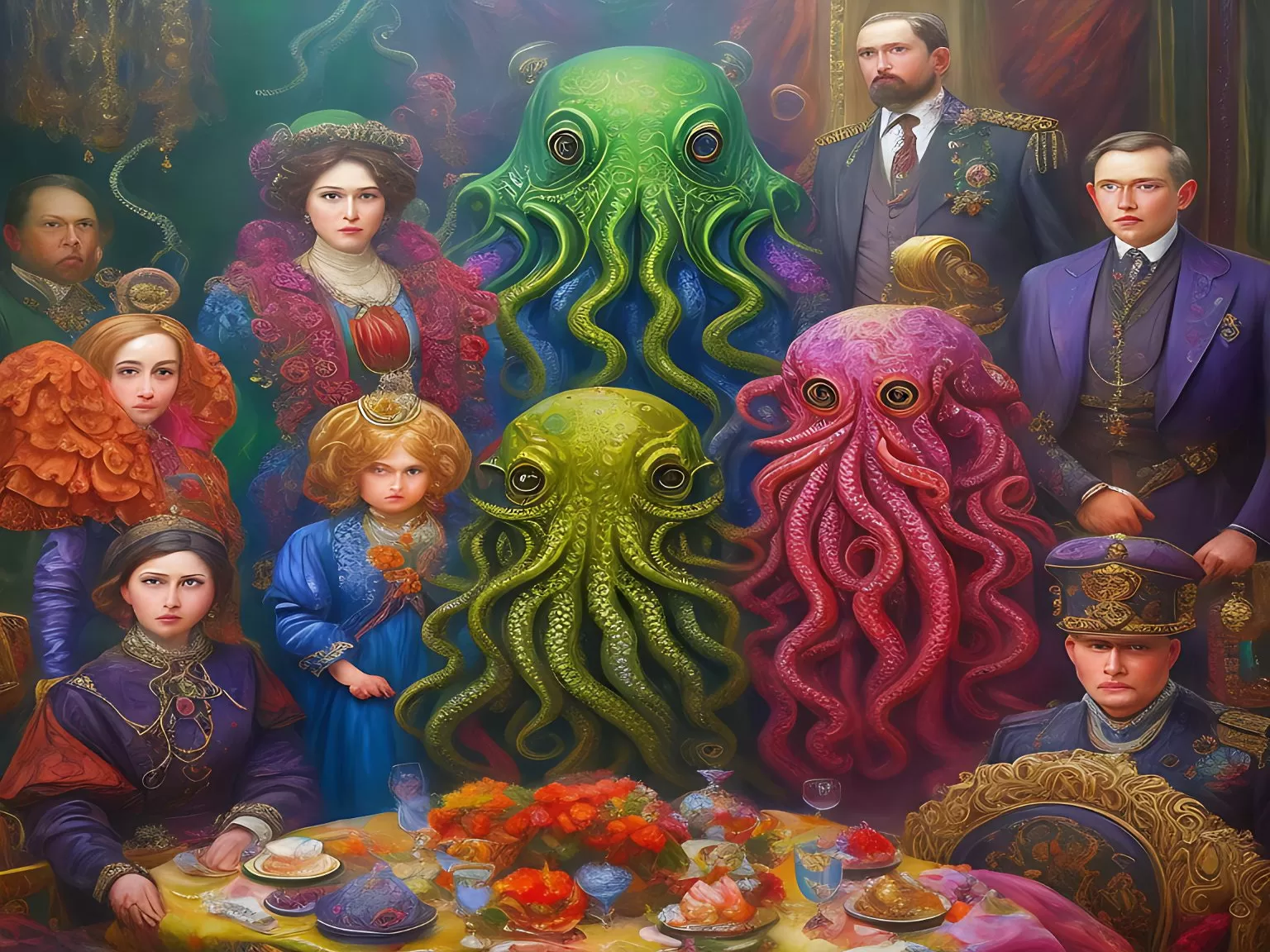


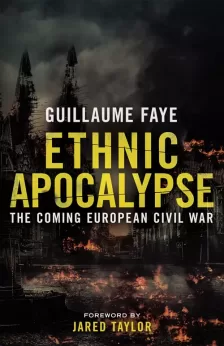
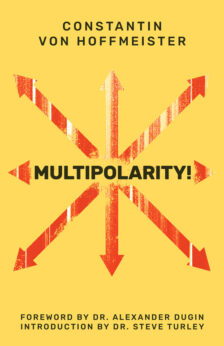



Constantin is the best in this style of writing.
Good. You are correct, we may not call it the same thing, But it is an enemy and comes from another world, it is Evil. Interesting mix of reality and steampunk horror.